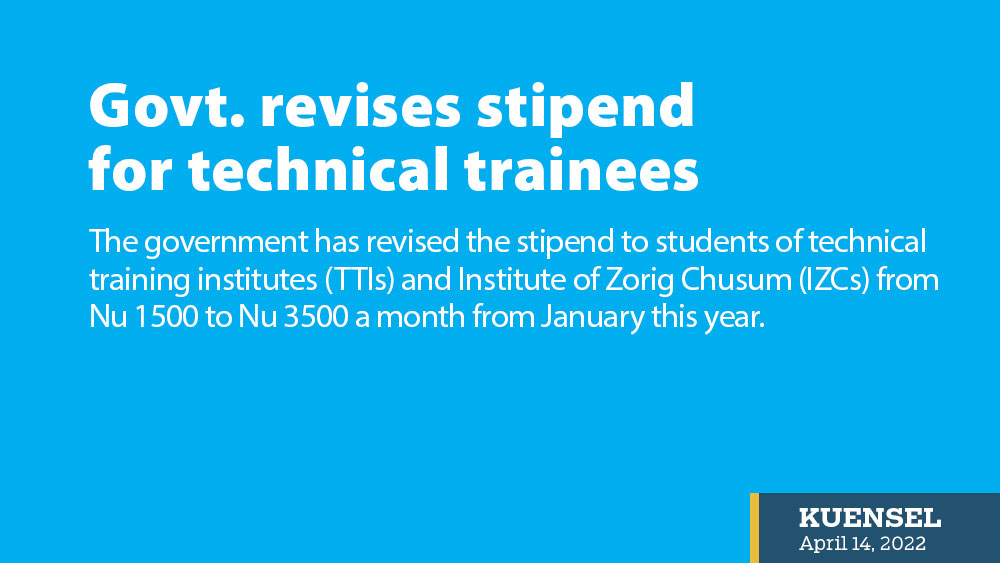Dechen Dolkar
The government has revised the stipend to students of technical training institutes (TTIs) and Institute of Zorig Chusum (IZCs) from Nu 1500 to Nu 3500 a month from January this year.
The stipend revision was possible after the Cabinet approved the re-appropriation of Nu 08.017M from the Build Bhutan Project (BBP) and Skills Development Program (SDP) to supplement the payment of the revised stipend.
The Ministry of Labour and Human Resources (MoLHR) has proposed the revision justifying that the training in TTIs and IZCs requires a lot of physical exertion.
Officials from the Department of Technical Education said that the training programmes involve a substantial amount of physical work unlike education in the academic schools and colleges.
“TTIs and IZCs have reported that the existing stipend which was revised in 2005 does not meet the balanced diet and minimum calorie intake,” the official said.
The official mentioned that the on-the-job training (OJT) and industrial attachments, which are the important components of technical vocation and education and training (TVET), require trainees to spend months at the worksites. “The OJT requires trainees to manage their food and accommodation from the stipend.”
Officials said that the stipend revision is expected to serve as one of the ways to attract high-scoring students with a genuine passion to undertake TVET programmes.
The government has also directed the ministry to meet the stipend revision budget from existing projects or programmes.
“Given that the majority of the regular trainees are engaged in construction-related training, the ministry decided to meet the additional budget required for the payment of revised stipend from BBP until June 2022,” the official said.
Meanwhile, the ministry was also directed to explore the possibility of extending the course period of VTI students to enable students to the internship.
Internship in the form of OJT was embedded as part of the overall training curriculum. All the trainees before graduation will have to undergo three months of mandatory OJT in the related industry.
Officials said that for the Build Bhutan Project, the OJT duration was increased to six months.
They also said that recognising the scope to further improve the effectiveness of the OJT, both for the trainees and industry, the department is currently reviewing the OJT guideline.
As of March 2022, there are a total of 1,396 trainees currently undergoing various skills training programmes at six TTIs and two IZCs.


